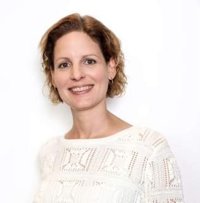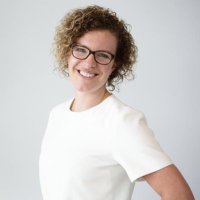Let’s Talk About Impact is a series that explores various aspects of making impact. We strive to make a change for the better, to make an impact, but what lies beyond this buzzword? We often talk about making impact together with stakeholders. One facet of this is working together with citizens to make an impact relevant to their living context. That's why today we will talk about Citizen Science.
Citizen Science refers to the practice of involving citizens in the process of doing research, not just as research objects ("just a data point"), but as co-scientists. For example, a citizen could help co-design a survey for their neighbourhood, instead of just filling it in. Citizens could be involved as early as the formulation of a research question, where they bring in topics relevant to their living environment.
Interview with the Citizen Science Hub
 Did you know that the UT has a Citizen Science Hub? We talked to Saskia Baas - Oude Hilbert (Project Manager Citizen Science at the DesignLab, pictured) to find out more.
Did you know that the UT has a Citizen Science Hub? We talked to Saskia Baas - Oude Hilbert (Project Manager Citizen Science at the DesignLab, pictured) to find out more.
Hi Saskia! Can you tell us a bit more about the Citizen Science Hub? What can people go to you for?
The Citizen Science Hub Twente (CSHT) was established in 2023 during the European project Incentive. We are based in DesignLab and serve as central point of contact for the UT. The CSHT brings together expertise, resources, and infrastructure to effectively support and coordinate citizen science initiatives. By doing so, we drive the development of citizen science projects, provide support to both citizens and scientists, and create and foster a network. An example is the Civic and citizen science project that was co-funded by the Province of Overijssel, which we are coordinating. The aim of this project is to get citizens of Twente more involved in science to create a societal impact. In September 2023, 5 pilot projects started where UT researchers and citizens work together (you can find more projects online).
Interesting! Do you have any tips for researchers that are interested in doing something with citizen science, but are overwhelmed by all the options?
We are always happy to meet and talk about the options. Also, we can connect them to other researchers or partners that might have similar experience or are willing to cooperate, both inside and outside UT. You can think of municipalities, the province, civil organisations etc. We can provide information and relevant papers for example. It is important to realise that Citizen Science is not only about gathering data from citizens. It's about fostering equal collaboration with citizens at various stages of research, ensuring mutual benefit so that both sides gain value and the societal impact becomes truly meaningful. Here, we like to use the 10 principles of citizen science from ECSA.
 I also see that you have launched Meedoen, can you tell a bit more about this platform?
I also see that you have launched Meedoen, can you tell a bit more about this platform?
MEEDOEN (Dutch for ‘PARTICIPATE’) was founded in 2023 by Renske van Wijk (pictured right) from the TechMed Centre to create a platform that enables researchers to easily involve citizens in their projects and open up the university to society. This not only for citizen science projects, but to interest a broad group of citizens for all the various types of research that are open for participation. An important aspect is the accessibility of this website; the content needs to be in a language that everyone understands. Also, the website is now available in English.
MEEDOEN is designed for University of Twente researchers, who, after receiving approval from the ethical committee, can upload their projects to the platform. Our team ensures the project descriptions are engaging and accessible to a wide audience. People can sign up to participate in the project through MEEDOEN. To connect with citizens, we send newsletters to our database of interested participants, attend events, and advertise in local publications. Through these efforts, the pool of engaged citizens continues to grow.
Looking ahead, we aim to further expand MEEDOEN as a bridge between society and UT research. Recent budget cuts have made it challenging to sustainably embed and grow this way of working. Though, in such times, bridging between science and society is as important as ever. Despite these challenges, we remain committed to offering this service to researchers and to bridge the gap between UT and society.
In the spotlight: experiences of a researcher
 Ria Wolkorte (assistant professor at the Health Technology & Services Research group, pictured) is engaging citizens in her work. We asked why that is of added value to her, how she does it, and if she has tips for other colleagues.
Ria Wolkorte (assistant professor at the Health Technology & Services Research group, pictured) is engaging citizens in her work. We asked why that is of added value to her, how she does it, and if she has tips for other colleagues.
"My research focuses mainly on fatigue and self-management for people with chronic conditions or cancer. I also try to better understand aspects of citizen science that are different from other research approaches, such as ethical issues, issues on data, community management, and monitoring and evaluation.
I believe that involving citizens means incorporating a great knowledge source already in your research activities, so the research will improve. People with chronic conditions have a lot of knowledge on their own condition, how it affects their daily life, and how interventions or solutions might affect them – positively or negatively. They also understand how best to communicate with others in similar situations. Further, they understand what works and doesn’t work when designing research.
How I involve citizens depends on the specific project. Often, we start at the very beginning when brainstorming on new research ideas, and how the proposal should look. We do this by inviting several people to our project, to join the sessions. Not everyone is able to work on the – very scientific and often complex – proposal document, but by asking specific questions their input can be included. We try to continue this throughout the research design, data collection, analyses, and dissemination. We also have discussions on the level of openness with which we publish the data.
For me, it is going great! We can design research projects that are valuable to the people who it concerns, but also for the researchers and science in general. It is important to mention that using a citizen science approach to your research will take more time, and it does require some skills and an open mind from the researchers as well. My advice is to consider including citizens in your project as well, and contact the citizen science hub so they can support your efforts."
Colophon
This series is composed by BMS Research Support. While most content applies to a wider array of disciplines, some may resonate more with a BMS audience. If you work at BMS and have any impact-related questions, reach out to Tom Boogerd. If you work at another faculty, you can still reach out and we can find a colleague of your faculty who can help.
With special thanks to:
This news item is also available as a page on our website.









